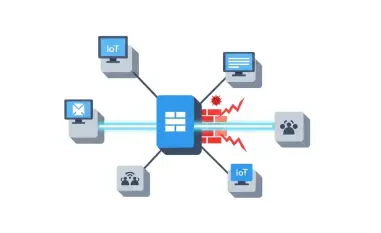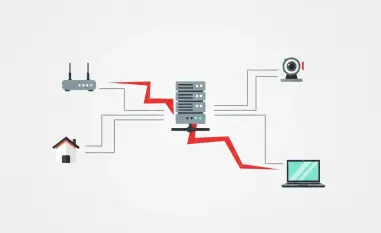Malik Haidar, a well-respected figure in the realm of cybersecurity, has a wealth of experience tackling complex security challenges for multinational corporations. With his extensive knowledge of analytics, intelligence, and security, Malik offers unique insights into the recent data breach at Ahold Delhaize USA. In this conversation, we explore the intricacies of the breach, dissect its impact, and delve into how organizations can bolster their defenses.
Can you provide a brief overview of the cyber-attack that impacted Ahold Delhaize USA in November 2024?
The attack on Ahold Delhaize USA was a sophisticated ransomware assault that targeted their internal business systems. It resulted in a significant exposure of personal data, affecting over 2.2 million individuals. This breach was part of a trend of increasing ransomware incidents specifically aimed at large food and beverage companies.
How did the cyber-attack lead to a data breach, and what information was accessed?
The cyber-attack led to a breach by infiltrating the company’s internal systems, giving attackers access to sensitive internal employment records. The accessed data included personal identifiers such as names, contact details, government IDs, bank account information, dates of birth, as well as health and employment records.
Was customer data compromised in the breach, or was it limited to employment-related information?
Based on the company’s statements, the breach was primarily limited to employment-related information. There is currently no evidence suggesting that customer data was compromised, including credit card and pharmacy records.
Can you detail the types of personal data that were exposed during the breach?
The breach involved a gamut of personal data, including names, contact details, dates of birth, government-issued IDs, bank accounts, health information, and various employment-related records. This breadth of data exposure presents multiple risks to the affected individuals.
What measures did Ahold Delhaize take immediately after detecting the attack to secure their systems?
Upon detecting the breach, Ahold Delhaize swiftly launched an internal investigation and engaged external cybersecurity experts. They worked to contain the threat, securing their systems to prevent further access. Such quick action is crucial in minimizing the impact of a breach.
How did the breach affect store operations and customer services, such as pharmacy and delivery?
The breach did impact store operations to some extent, as reported by some outlets. Delays were experienced in pharmacy and delivery services, though the company promptly addressed these disruptions as part of their response measures.
What actions have been taken to protect the 2.2 million affected individuals’ data post-breach?
To protect the affected individuals, Ahold Delhaize is providing two years of free credit monitoring and identity protection through Experian. This action aims to mitigate potential identity theft and financial fraud risks posed by the breach.
Why did Ahold Delhaize offer two years of free credit monitoring and identity protection? How effective is this in mitigating potential risks for the affected individuals?
Offering credit monitoring and identity protection is a standard response to data breaches to reduce the risks of identity theft. While it doesn’t prevent data misuse entirely, it allows individuals to catch and address fraudulent activities sooner.
Can you provide clarity on the alleged involvement of the INC Ransom group in the attack?
Though Ahold Delhaize hasn’t officially named an attacker, the INC Ransom group has claimed responsibility by listing the company on their extortion site. This group is known for their methodical attacks and poses a serious threat through their targeted ransomware operations.
What advice do cybersecurity experts provide to individuals affected by such data breaches?
Experts often advise individuals to regularly monitor their credit reports, consider freezing their credit, and remain vigilant in checking for signs of identity theft. Promptly addressing any irregularities can help mitigate potential damage.
How is Ahold Delhaize improving their cybersecurity measures to prevent future incidents like this?
Post-breach, Ahold Delhaize has committed to enhancing their data protection protocols, incorporating external cybersecurity expertise, and conducting ongoing monitoring of their systems. These steps aim to bolster their defenses and prevent similar incidents.
What role does multi-factor authentication and user segmentation play in preventing cyber threats, according to Lawrence Pingree?
According to Lawrence Pingree, robust multi-factor authentication and user segmentation are crucial in combating cyber threats. They help by adding layers of security, reducing the likelihood of unauthorized access, and containing potential breaches to minimal areas of impact.
How significant is this data breach compared to other ransomware attacks in the food and beverage sector?
This breach is notably significant, as it affected more than 2.2 million records, which is far above the sector’s average of 53,200 records. It highlights the growing risk and scale of ransomware threats in the industry.
Would this breach impact Ahold Delhaize’s brand reputation and customer trust? If so, how is the company addressing these concerns?
Such breaches can indeed harm a company’s reputation and erode trust. Ahold Delhaize is likely focusing on transparent communication and robust security measures to reassure their stakeholders and rebuild confidence.
Are there any legal or financial repercussions that Ahold Delhaize might face due to this breach?
Legal and financial repercussions can follow significant data breaches, including potential lawsuits, regulatory fines, and settlements for affected individuals. Ahold Delhaize will need to comply with applicable laws and demonstrate proactive efforts in response to the breach.
How can other organizations in the food retail sector learn from Ahold Delhaize’s experience to enhance their cybersecurity defenses?
Other organizations can learn from this experience by assessing their cybersecurity posture, investing in advanced threat detection technologies, educating their workforce on security best practices, and establishing robust incident response plans to quickly mitigate breaches.













